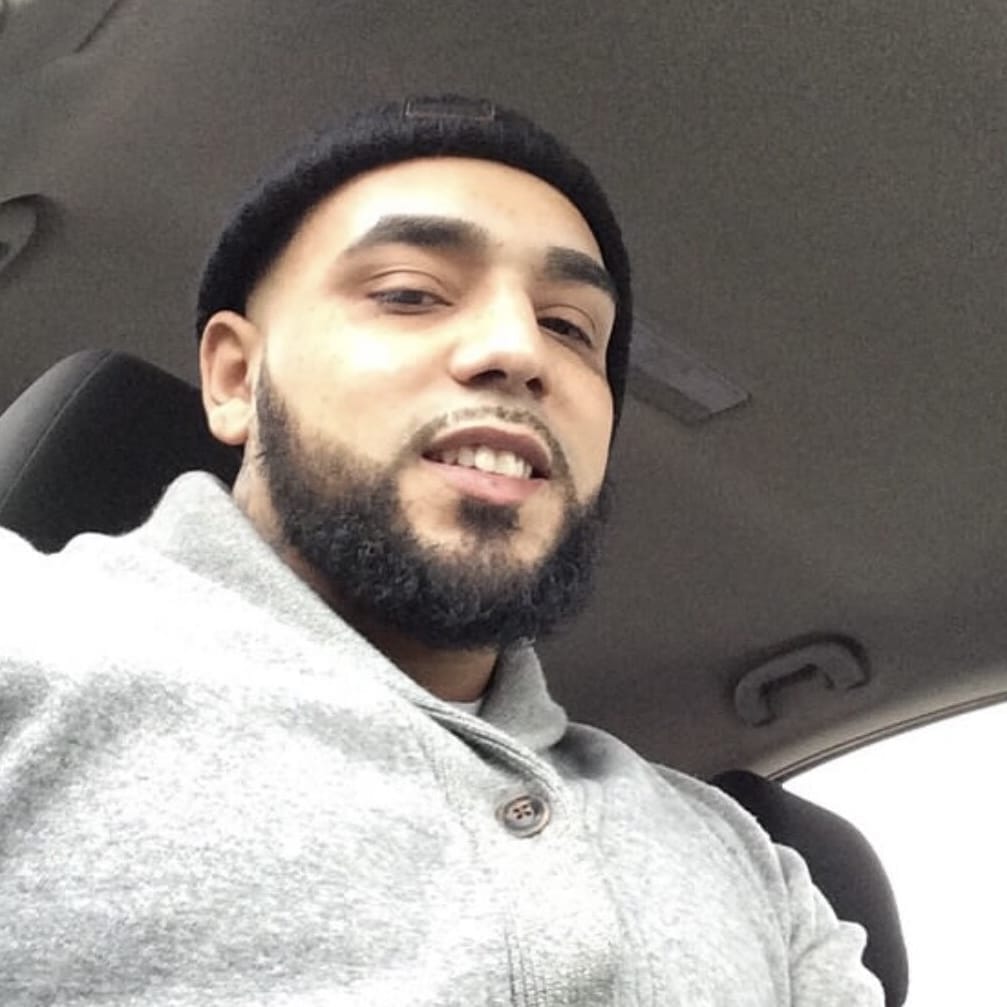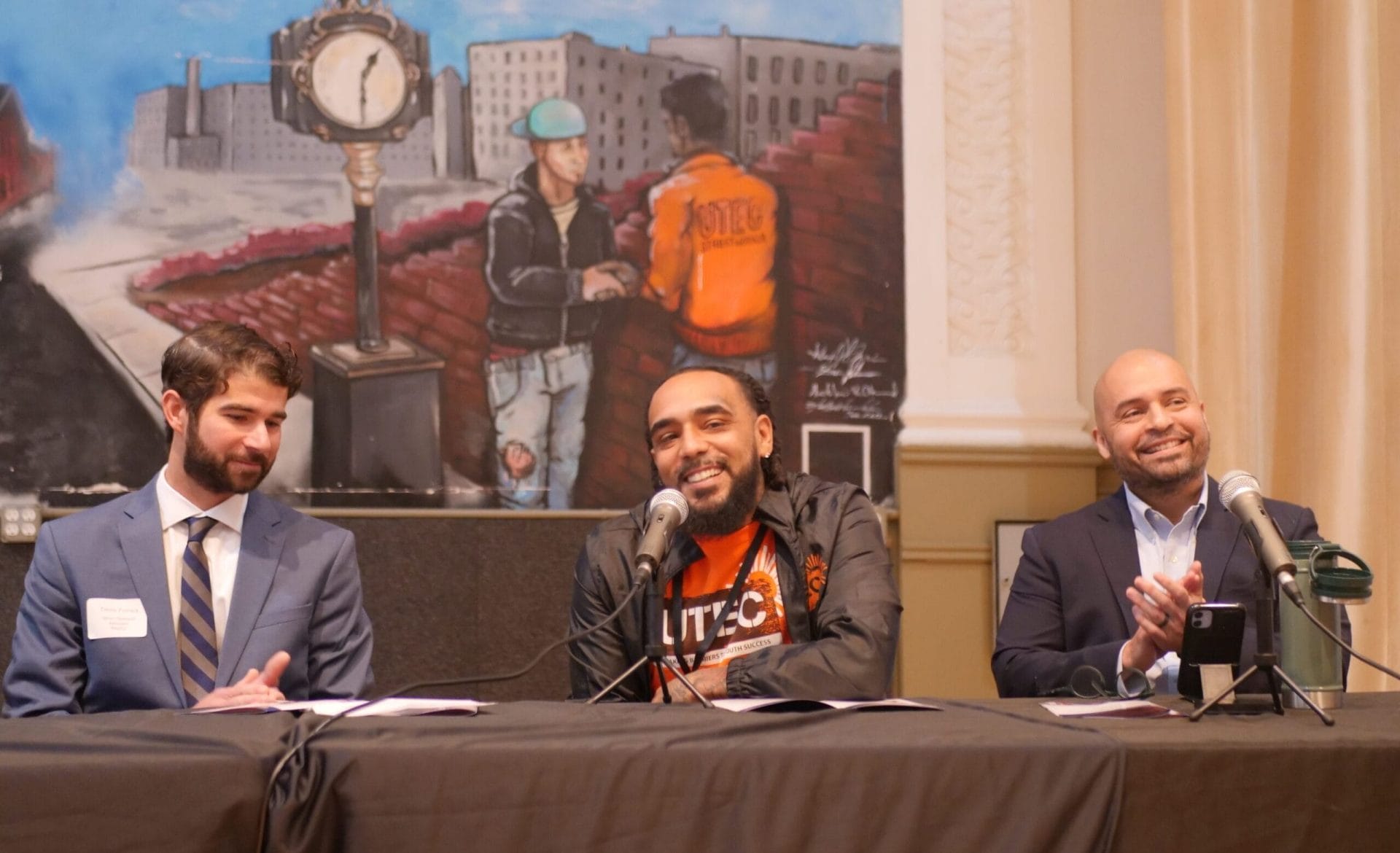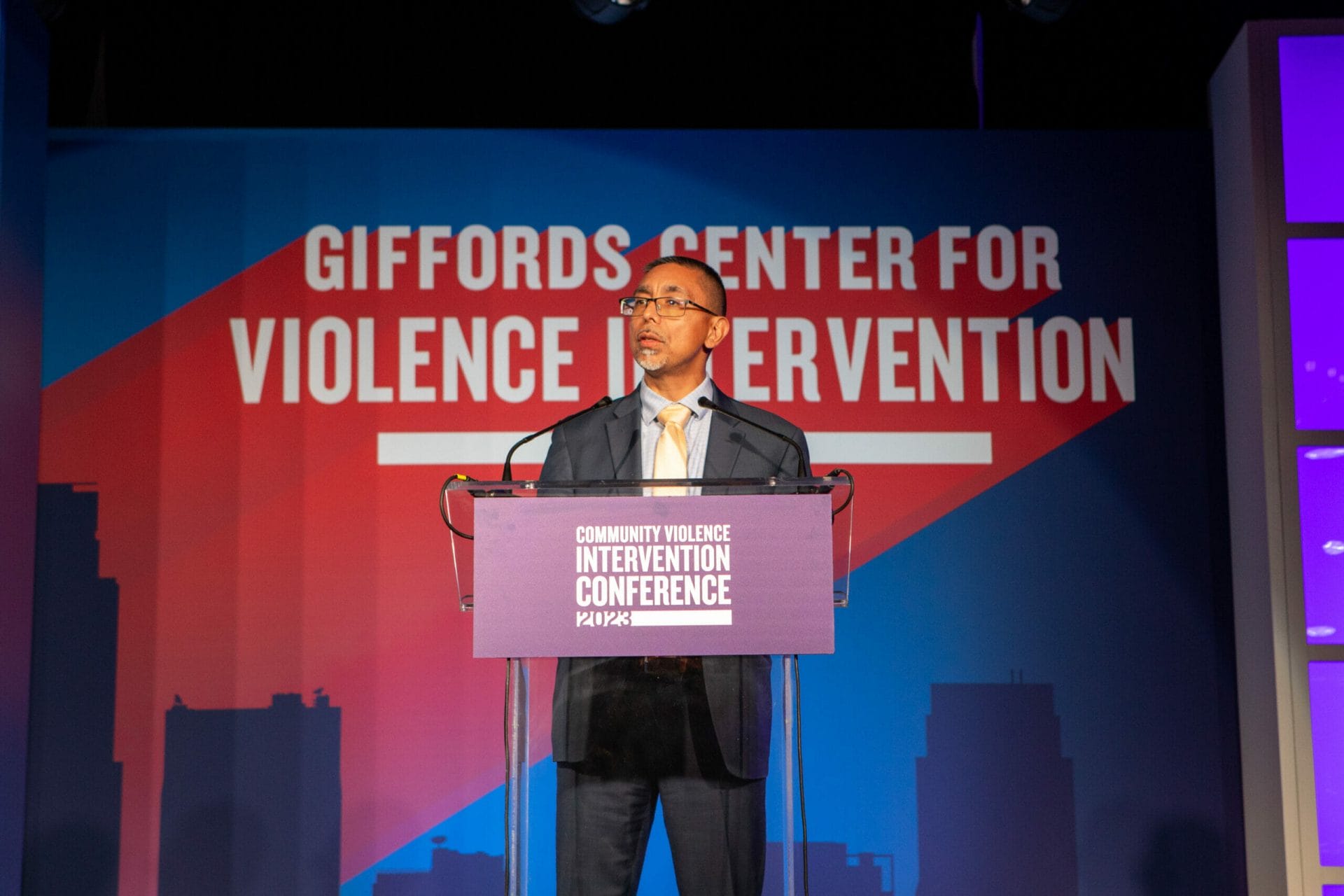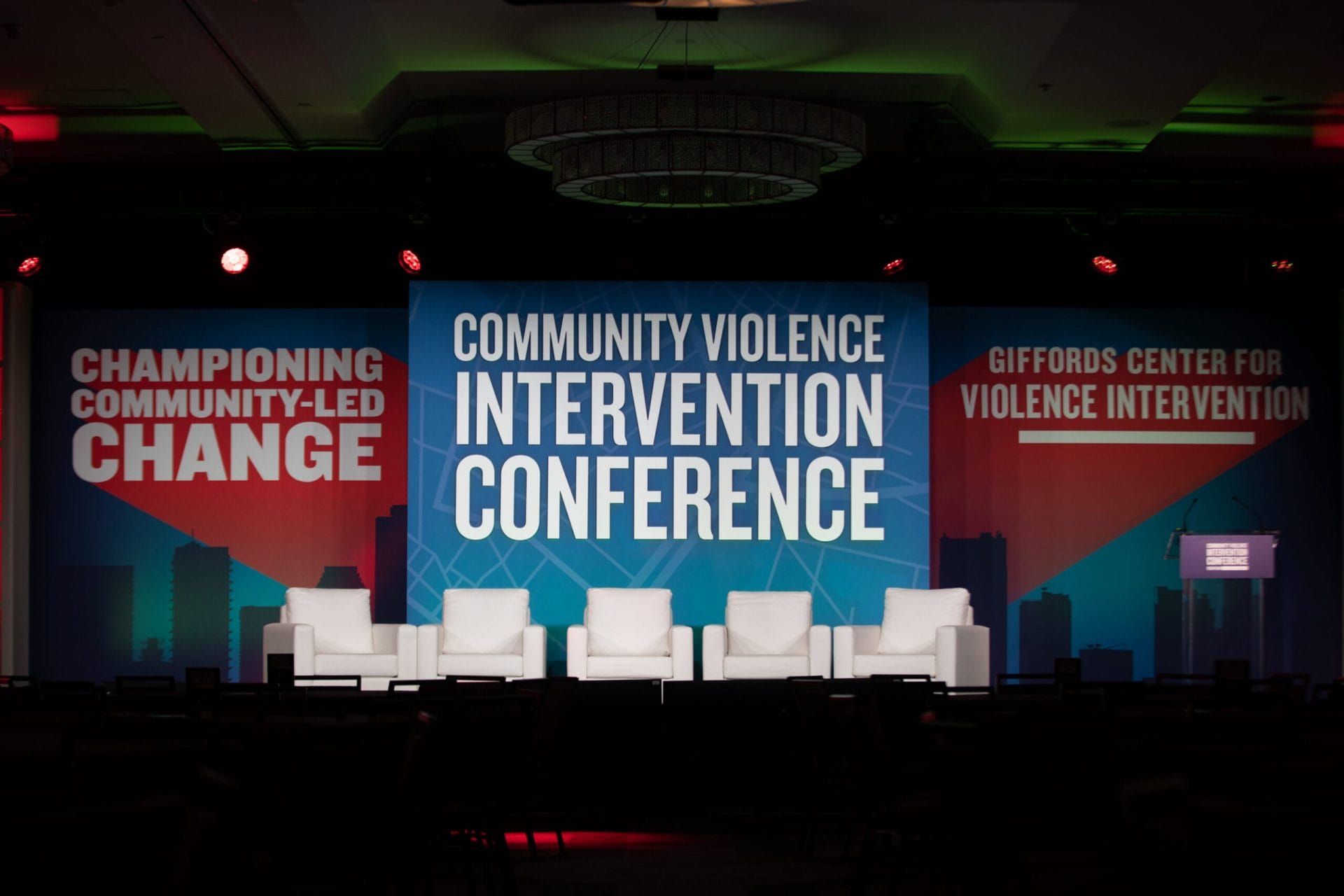Champions for Peace: A Conversation with David Cifredo of Lowell UTEC
Community violence intervention relies on concerned individuals willing to serve as peacemakers within their communities. They work tirelessly to prevent violence by engaging those at highest risk of using or being injured by a gun to alter the trajectory of their lives and curb the spread of violence. In this series, we hope to highlight the invaluable contributions of CVI workers and foster a deeper understanding of CVI from the perspective of the frontlines.
This quarter, we spoke with David Cifredo, a street outreach worker with UTEC in Lowell, Massachusetts. UTEC provides outreach, intervention, reentry services, education, workforce development, and more to young adults most impacted by violence.
This interview has been edited for length and clarity.
Street Outreach Worker, UTEC | Lowell, Massachusetts

GIFFORDS CENTER FOR VIOLENCE INTERVENTION: What does community violence intervention mean to you?
DAVID CIFREDO: Community violence intervention means being a first responder, that first person on the scene, and being able to intercept before anything happens. Gradually, we try to get young adults into programming, but there’s a lot we have to do before that point. We’re going to their neighborhoods and making sure that they have what they need.
It’s being present, keeping our word to these young adults, and being able to be that mediator in the middle and make some peace for them. We do the legwork to get them in so they can get social and emotional learning through the programming. But we’re so connected to them, so much like family to them—I can’t let them go. I’m always checking on their progress. I’m always checking on what they need next. Sometimes it’s overdoing my job, but it’s not really because that’s where my heart is.
What brought you to this work, and how do you keep yourself motivated?
There was a guy named Sako Long who was an outreach worker here. He was my street worker when I was deep in the influence, and he worked with me for a long time as a kid. But at that point, I didn’t understand what he was trying to tell me.
I was always in and out of jail, since I was 17, but around the age of 26, I was sitting in a cell and everything he told me started to hit me as a man. I started really hearing the echo of what he was telling me. I had to start making different choices and used those years to work on myself.
I had a lot of PTSD—couldn’t go outside, couldn’t be around people. Before, I was very into sports, always around people, and partying. It took another eight-to-ten years once I came out of jail to really be ready.
Being a young adult in this program and knowing that they never gave up on me, never looked at me different, never judged me, and always gave me another try even if it was a year or three years later—that consistency is what made me do this work. I want to be that same guy for somebody else.
What do people need to understand about CVI or addressing violence?
If you can get in, start that relationship building. Just don’t be the 100th person to let them down. If you give your word, keep your word. If you don’t get it done today, try to follow up and get it done tomorrow. Cherish that relationship because it can be easily broken.
Another thing is that this work can be very trauma-opening for us too. We have PTSD from our situations and our own lived experiences. Take some time for yourself, a wellness day if you need it, because we do bring this home with us—and we bring them home with us.
We have a 9 to 5, but it’s really at night, when people are home and have no program, that their challenges really hit. You want to have that relationship where they’re calling you at three, four in the morning. That’s the phone call that’s most important. You don’t want to miss that call.

David Cifredo, center, of Lowell UTEC.
Can you share a story about a time where you felt the impact of your work or the work of your colleagues in the community?
Last month after work, at about eight o’clock at night, I was visiting my aunt in one of the hot neighborhood areas. I see a group of about four or five guys with hoodies and masks and they walk in my direction. I’m looking and looking, and I think, “I know those guys! Those are boys from the program. What are they trying to do?”
They’re in the middle of going to act on something, but I caught them on the corner. Now, I get 10 minutes with them. I found out they were actually trying to find somebody that used to be in programming. As I’m talking to them and getting them to start taking the stuff off, two groups of cars come up—the other guys that they were supposed to go get.
Now, I have these guys ready to rumble. Both have got a knife out. They’re ready.
But I already know this group of kids. I’ve watched them grow up, and because I work with them in the program, I’m with them every day. Now I’m in the middle, and I say, “Please give me five minutes.”
After the five minutes, I’m able to get them all to the point where they were saying things like, “We used to play basketball together.” “We used to be in camp together.” I told them, “You guys don’t have to shake hands if you don’t want to, but I’m glad we got past this.” They ended up shaking hands on their own.
The next day, I talked to this case worker and told her that the other kid was available to come back into programming. He’s now back in the program. God put me in the right place at the right time.
What is the hardest part of your job?
The hardest part of my job is pulling away, pulling back, or giving yourself time. Sometimes I feel like I’m helping everybody so, so, much. And then at the end of the month, it’s like, “Wow, I haven’t helped myself one bit.”
There’s a big difference between working with your hands and working with your mind. Your mind can get your whole body down fast—I can’t go to sleep sometimes because I’m thinking about if I got that done, and where are they? Did I do enough for them to get by? Things like that.
What is your biggest hope for the future of your work and the CVI field?
CVI is never going to stop. I think it’s going to be a journey forever. I think violence numbers will go down, like they have. I think opening up opportunities for people with lived experience to be able to be in these positions is needed and something that should have happened a long time ago.
Now, we have got to figure out how we can become just as important as police officers or as firefighters, right? Because we are—we just need support.
Thank you, David Cifredo and the entire UTEC team. We look forward to bringing you more conversations with other dedicated peacemakers.
STAY CONNECTED
Interventions are most effective when they are supported by strong community networks. Sign up for Giffords Center for Violence Intervention’s newsletter to learn more about what’s happening in the field, relevant legislation, and funding opportunities.


EVENT
2025 CVI CONFERENCE
Giffords Center for Violence Intervention will host its first annual Community Violence Intervention Conference in Los Angeles on June 16 & 17.
Learn More